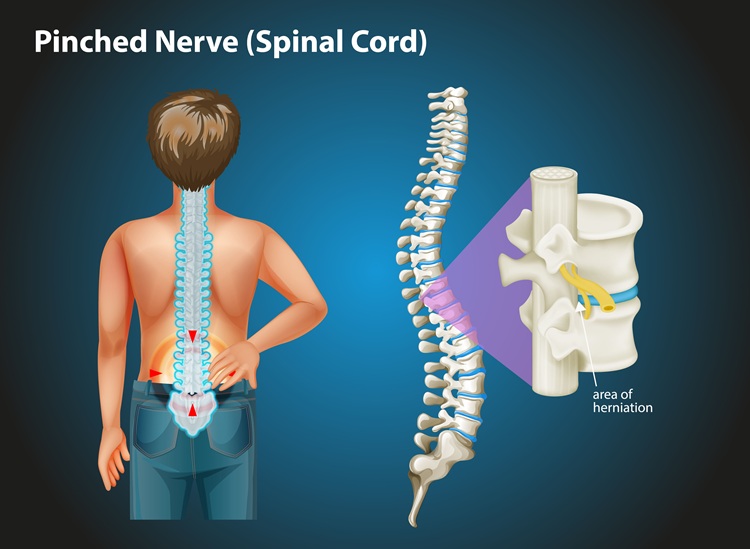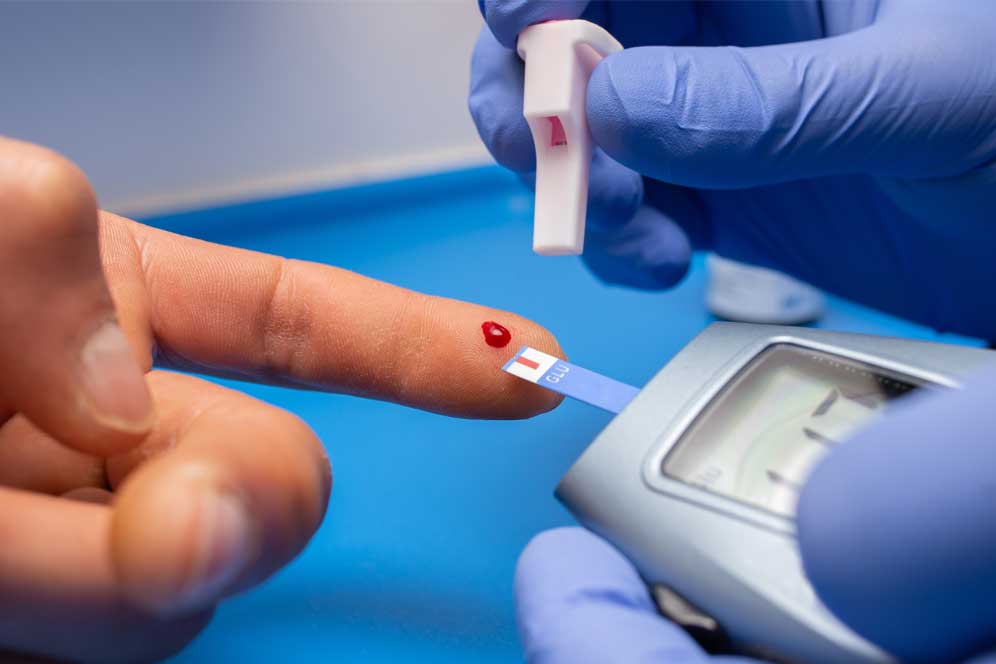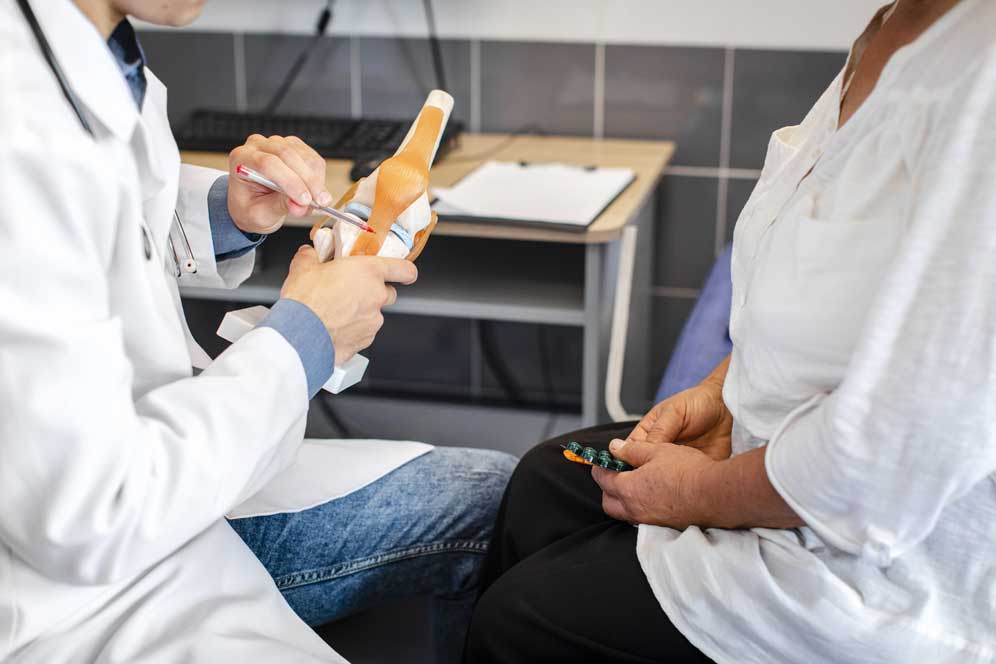
13 Oct 2025
What Is the Spinal Cord? Structure, Functions, and Key Facts Explained
The spinal cord is one of the most remarkable and vital structures in the human body. Often referred to as the body’s “information highway,” it acts as the main communication link between your brain and the rest of your body. Without it, your brain’s messages wouldn’t reach your limbs, and your body wouldn’t know how to respond to the world around it.
In this guide, we’ll explore the spinal cord structure and functions, and its essential role in maintaining everyday body activities.
What Is the Spinal Cord?
The spinal cord is a long, cylindrical bundle of nerve tissue that extends downward from the brainstem through the spinal canal — a protective bony tunnel formed by your vertebrae.
It’s about 45 cm (18 inches) long in men and slightly shorter in women. Though it looks simple, it’s a highly organized and powerful structure composed of millions of nerve cells that transmit electrical signals between your brain and body.
In essence, the spinal cord acts as a relay system — carrying commands from your brain to your muscles and sensory information from your body back to the brain.
What is the Spinal Cord Structure and Function?
Structure of the Spinal Cord
Understanding the structure of the spinal cord helps explain why it’s so effective in coordinating body functions.
1. Location and Protection
The spinal cord lies within the vertebral column, safeguarded by several protective layers:
-
Vertebrae: The bony rings that make up your spine form a strong casing around the spinal cord.
-
Meninges: Three protective membranes — the dura mater, arachnoid mater, and pia mater — envelop the spinal cord.
-
Cerebrospinal Fluid (CSF): This clear fluid cushions the spinal cord, absorbing shocks and providing nutrients.
Together, these layers protect the delicate nerve tissues from injury and infection.
2. Segmentation and Regions
The spinal cord is divided into 31 segments, each giving rise to a pair of spinal nerves — one on the left and one on the right. These nerves emerge through small openings between vertebrae and connect to different parts of the body.
The cord itself is divided into five main regions:
-
Cervical (neck region) – 8 pairs of nerves
-
Thoracic (chest region) – 12 pairs
-
Lumbar (lower back) – 5 pairs
-
Sacral (pelvic region) – 5 pairs
-
Coccygeal (tailbone region) – 1 pair
Each region controls specific parts of the body — for example, cervical nerves control arms and hands, while lumbar nerves control legs and feet.
3. Cross-Sectional Anatomy
When you look at a cross-section of the spinal cord, you’ll see two main types of tissue:
-
Gray Matter: Shaped like a butterfly or the letter “H” in the center, gray matter contains nerve cell bodies that process information.
-
White Matter: Surrounding the gray matter, white matter contains myelinated nerve fibers (axons) that carry signals up and down the spinal cord.
Additionally, the spinal cord has two primary “roots” for each nerve:
-
Dorsal (Posterior) Root: Carries sensory information into the spinal cord.
-
Ventral (Anterior) Root: Carries motor commands out from the spinal cord to muscles.
This organized structure ensures that every message sent or received is directed to the right destination.
Functions of the Spinal Cord
The function of the spinal cord goes far beyond just carrying messages — it plays a central role in how your body senses, reacts, and functions. Let’s look at its major functions.
1. Communication Pathway Between Brain and Body
The spinal cord is like an electrical cable connecting your brain to every muscle, gland, and organ in your body. It performs two-way communication:
-
Ascending pathways: Carry sensory information (like pain, touch, or temperature) from the body to the brain.
-
Descending pathways: Carry motor commands (like movement instructions) from the brain to the body.
For example, when you touch something hot, sensory nerves send a signal through the spinal cord to the brain, which instantly tells your hand to pull away.
2. Reflex Actions
Not all responses need the brain’s direct involvement — and that’s where reflexes come in. The spinal cord can process certain actions on its own to ensure immediate response.
For instance, when you accidentally touch a sharp object, your hand jerks back instantly — even before your brain realizes what happened. This automatic reaction, known as the spinal reflex, is controlled entirely by the spinal cord.
These reflexes are crucial for protecting the body from harm and maintaining balance and posture.
3. Coordination of Movement
The spinal cord integrates signals from different parts of the body to coordinate complex movements like walking, running, or typing.
It acts as a control hub, ensuring that muscles contract in a synchronized and balanced manner. For example, when you walk, one set of muscles contracts while the opposite set relaxes — this coordination is regulated through spinal circuits.
4. Transmission of Autonomic Signals
Apart from voluntary movement, the spinal cord also transmits autonomic signals that regulate involuntary functions such as heart rate, digestion, and bladder control.
Through connections with the autonomic nervous system, the spinal cord ensures that vital processes continue automatically — even when you’re not consciously thinking about them.
Role of the Spinal Cord in Your Body
The role of the spinal cord extends to almost every system in the body. Here’s how it contributes to key functions:
-
Movement and Motor Control: Commands from the brain travel through the spinal cord to control skeletal muscles.
-
Sensory Processing: Touch, pressure, pain, and temperature sensations are carried via spinal nerves to the brain.
-
Posture and Balance: Spinal reflexes and muscle tone adjustments help maintain balance and coordination.
-
Internal Organ Regulation: The spinal cord helps manage internal organs through autonomic pathways.
-
Survival Reflexes: Rapid responses prevent injury and maintain body safety.
In simple terms, the spinal cord ensures that your body acts, reacts, and adapts to every situation seamlessly.
What Happens If the Spinal Cord Is Damaged?
Because the spinal cord is so vital, damage to it can have serious consequences. Spinal cord injuries (SCI) can result from trauma (like accidents or falls), infections, or degenerative diseases.
The severity of the injury depends on its location and extent:
-
Partial injury: May cause weakness or numbness in certain parts of the body.
-
Complete injury: Can result in paralysis — loss of movement and sensation below the level of injury.
For example:
-
An injury in the cervical region can cause quadriplegia (paralysis of all four limbs).
-
An injury in the lumbar region may cause paraplegia (paralysis of the lower body).
Advancements in medicine, physiotherapy, and rehabilitation, however, continue to improve recovery and quality of life for patients with spinal cord injuries.
How to Keep Your Spinal Cord Healthy
Maintaining spinal health is essential for overall well-being. Here are some ways to care for it:
-
Practice good posture – Keep your spine aligned while sitting, standing, or sleeping.
-
Exercise regularly – Strengthen back and core muscles to support your spine.
-
Lift objects safely – Bend your knees, not your back.
-
Maintain a healthy weight – Excess weight can strain your spine.
-
Wear protective gear – Use seatbelts and helmets to prevent spinal injuries.
-
Stay hydrated – Keeps spinal discs healthy and flexible.
-
Avoid smoking – It impairs blood flow to spinal tissues.
By keeping your spine strong and healthy, you protect the spinal cord — and, in turn, your entire nervous system.
In a Nutshell
The spinal cord is the lifeline that connects your brain to your body — an intricate structure that powers every movement, sensation, and reflex. Its structure ensures protection and precision, while its functions enable everything from walking to heartbeat regulation.
Simply put, your spinal cord is the silent powerhouse that keeps you moving, feeling, and living — every single day.
Recent Blogs
-

We will work with you to develop individualised care plans
Arora Neuro Centre maintains awareness about the vital association between diabetes and neurological health issues where diabetic patients face greater stroke susceptibility.
-

How Diabetes Affects Brain Health: The Hidden Risks
Typically diabetes causes problems with blood sugar management as well as negative effects on heart organs and kidneys.
-

Can Diabetic Neuropathy Be Prevented? What You Need to Know
One of the typical complications arising from diabetes affects nerves through diabetic neuropathy which results in various symptoms from muffled sensation and tingles to intense pain.
-

Psychotherapy for Anxiety: Techniques That Really Work
Anxiety is one of the most common mental health conditions in India and around the world. It can affect anyone, whether you’re a student under pressure, a working professional managing deadlines, or a parent juggling multiple responsibilities
-

Physiotherapy vs. Chiropractic: What's Really Differentiating Them?
Physiotherapy and chiropractic care both aim to relieve pain and improve mobility, but they differ in approach. Physiotherapists focus on exercise, movement, and rehabilitation, while chiropractors primarily use spinal adjustments to treat musculoskeletal issues. Understanding these differences can help you choose the right treatment.
